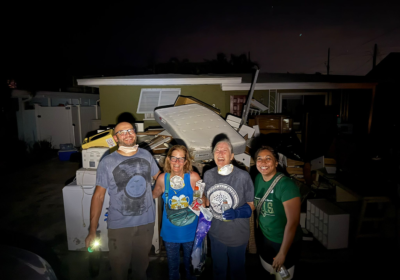New clause in House bill could make USF one university

An addition to a bill in the Florida House of Representatives is looking at merging the USF System into one university. It would make USF St. Petersburg and Sarasota-Manatee into satallite campuses.
SPECIAL TO THE ORACLE
The University of South Florida has been a system comprised of separate campuses for over 10 years, but a bill in the Florida House of Representatives might be getting ready to change that.
While not the central focus of Bill 423, the current draft making its way through the House includes a clause that would call for USF to become one university with satellite campuses in St. Petersburg and Sarasota-Manatee.
The full bill is looking at Florida Prepaid requirements and that form of the bill passed in the Florida Senate, but tacked onto the end is now a provision that USF come up with a plan to end separate accreditations of the three campuses and instead seek one accreditation and become one university.
In amendments to the bill, the Board of Trustees would be given until Jan. 15, 2019 to come up with a plan to unify the three campuses by June 2020. However, what all that means remains unclear.
One portion that the bill does spell out is that the university’s six-year graduation rate, freshman retention rate and other metrics for receiving state funds would be grouped together from all three campuses.
While the bill states exceptions with students enrolled prior to the bill passing and students who choose to leave the university system prior to the unification under a single accreditation, it still raises questions of where USF would stand in these metrics with the bill fully implemented.
For instance, at the beginning of the fall semester, USF System President Judy Genshaft announced that the Tampa campus now meets the required current benchmarks to be a pre-eminent university.
The current benchmarks include a 90 percent freshman retention rate and a 70 percent six-year graduation rate. At a BOT meeting in March, USF Tampa had a projected 95.7 percent freshman retention rate and a 68.1 percent six-year graduation rate.
However, the St. Pete campus had a 93 percent freshman retention rate and a 34 percent six-year graduation rate, with the Sarasota-Manatee campus having a 88 percent freshman retention rate and didn’t include a graduation rate in the March report.
Combining the metrics of all three campuses could have an impact on the school’s status as pre-eminent and thus the amount of state funding received.
Along with metrics, the university would have to figure out details from University Police staffing to diplomas at the new satellite campuses. However, until the bill is voted on by the House, what will happen to the university system remains up in the air.
University spokeswoman Lara Wade could not be reached for comment, but issued a statement to the Tampa Bay Times earlier in the day.
"Regardless of the outcome, we intend for each USF System campus to continue achieving higher levels of student success and scholarly activity, and as a result we will provide all students with the world-class education they came here to earn," Wade said.






